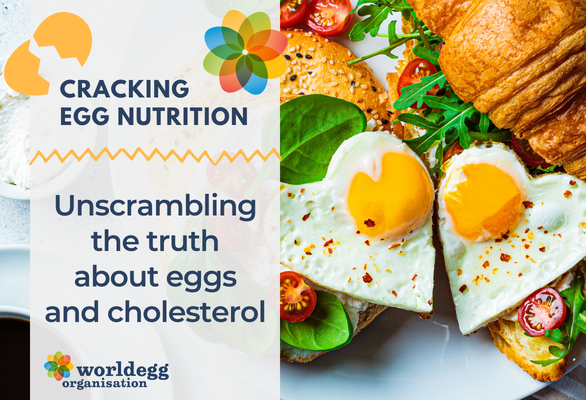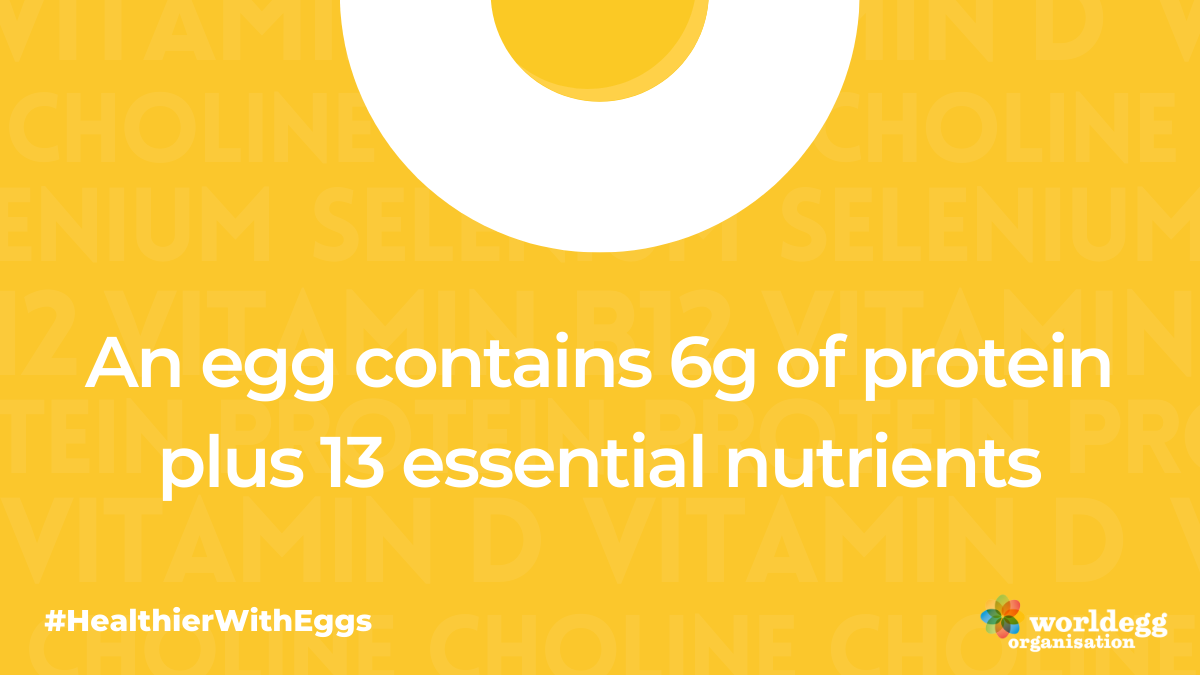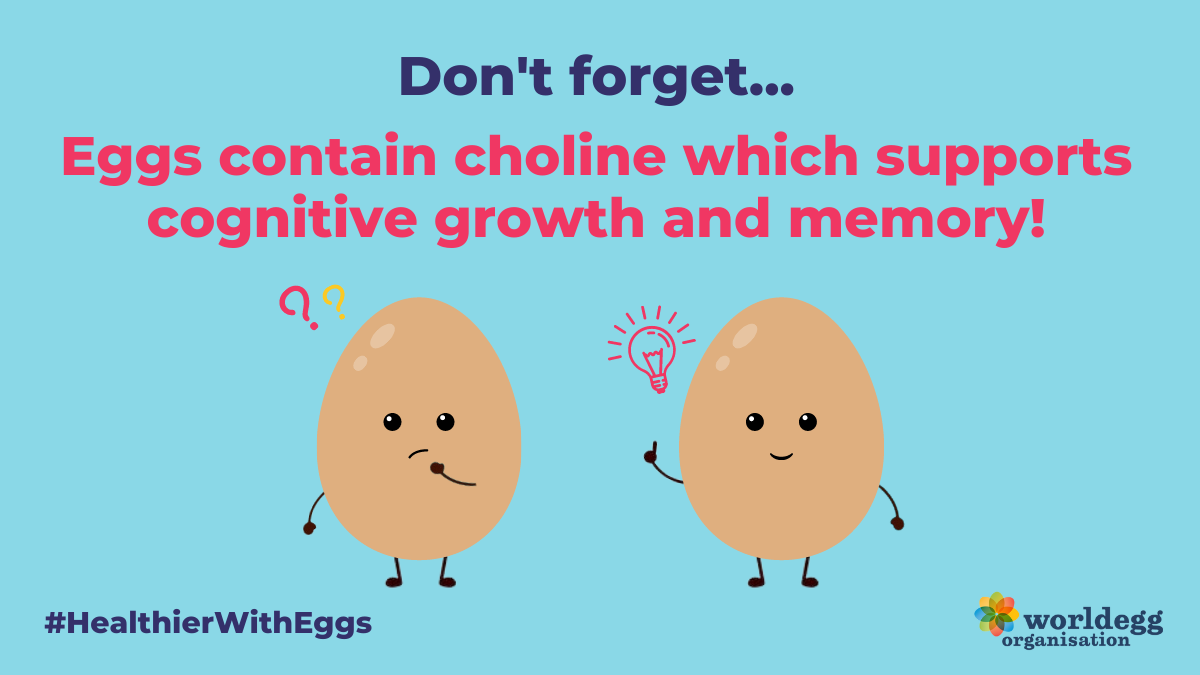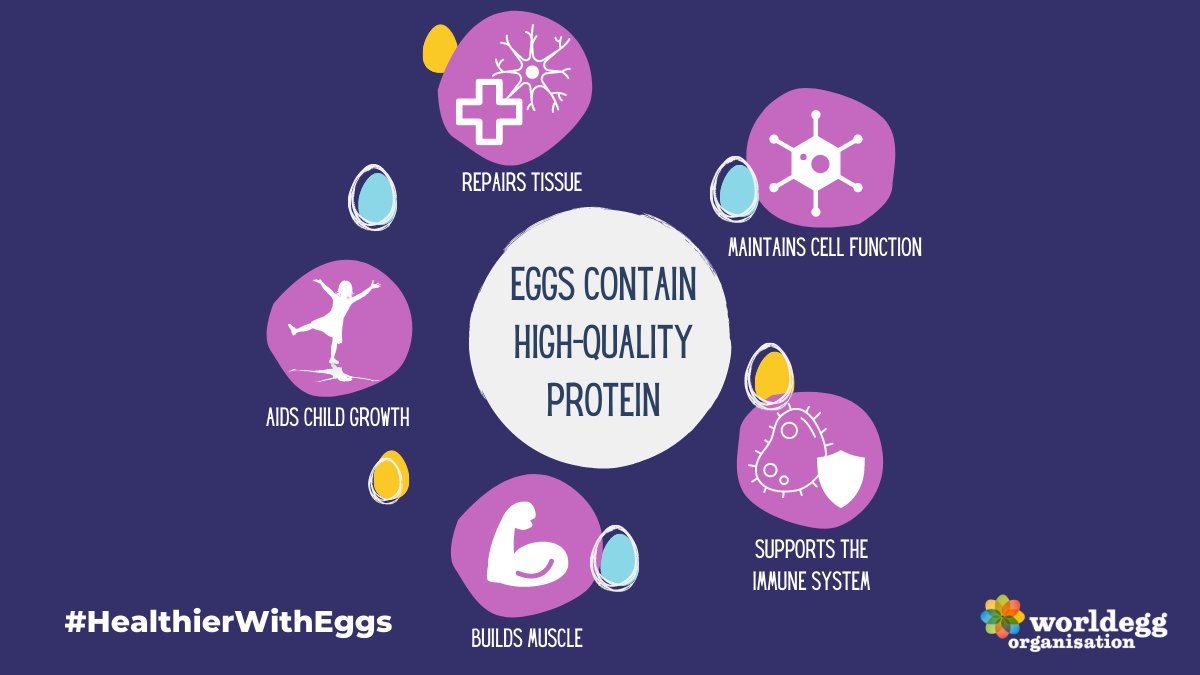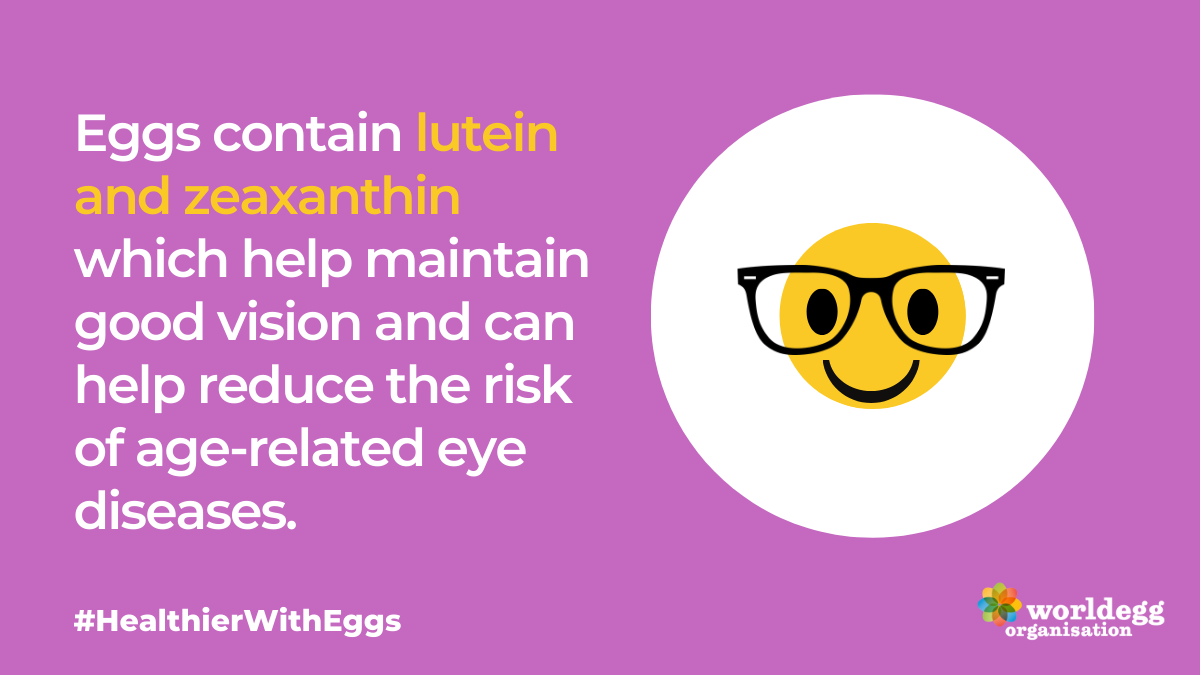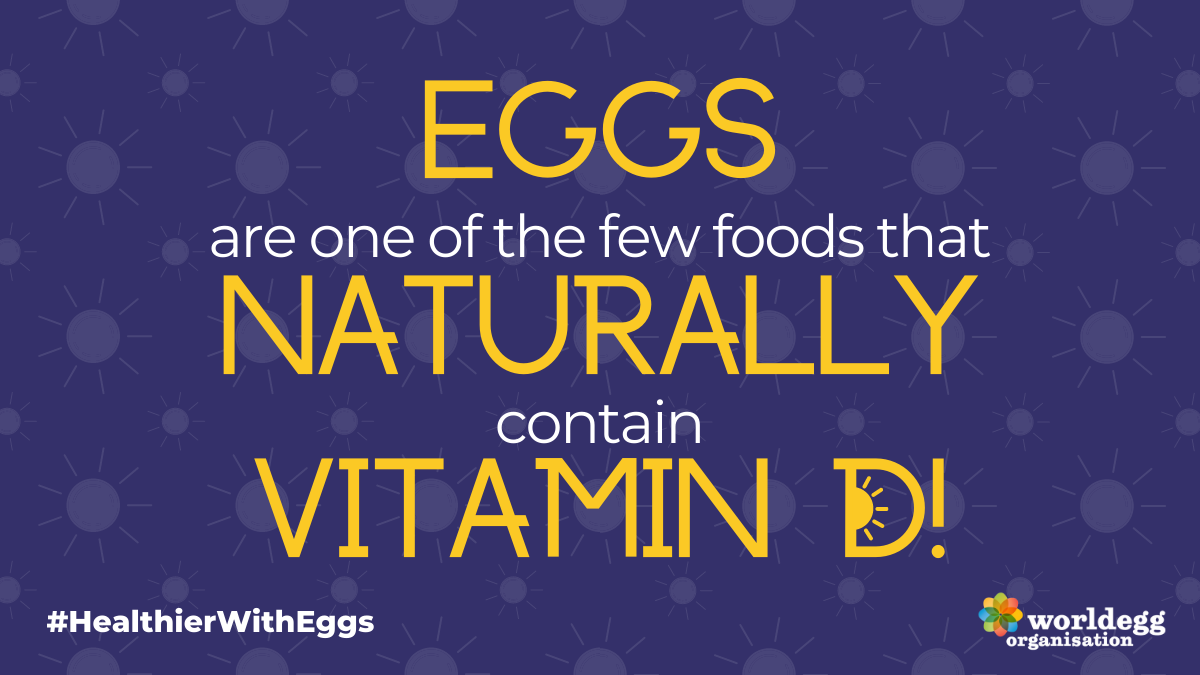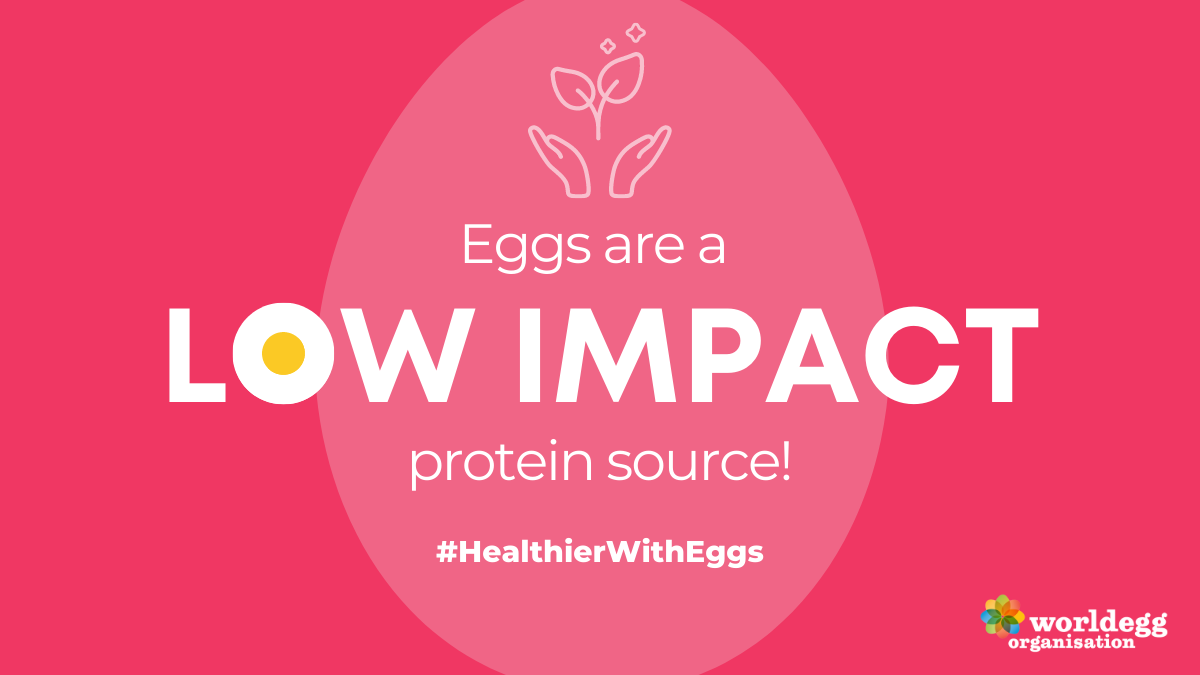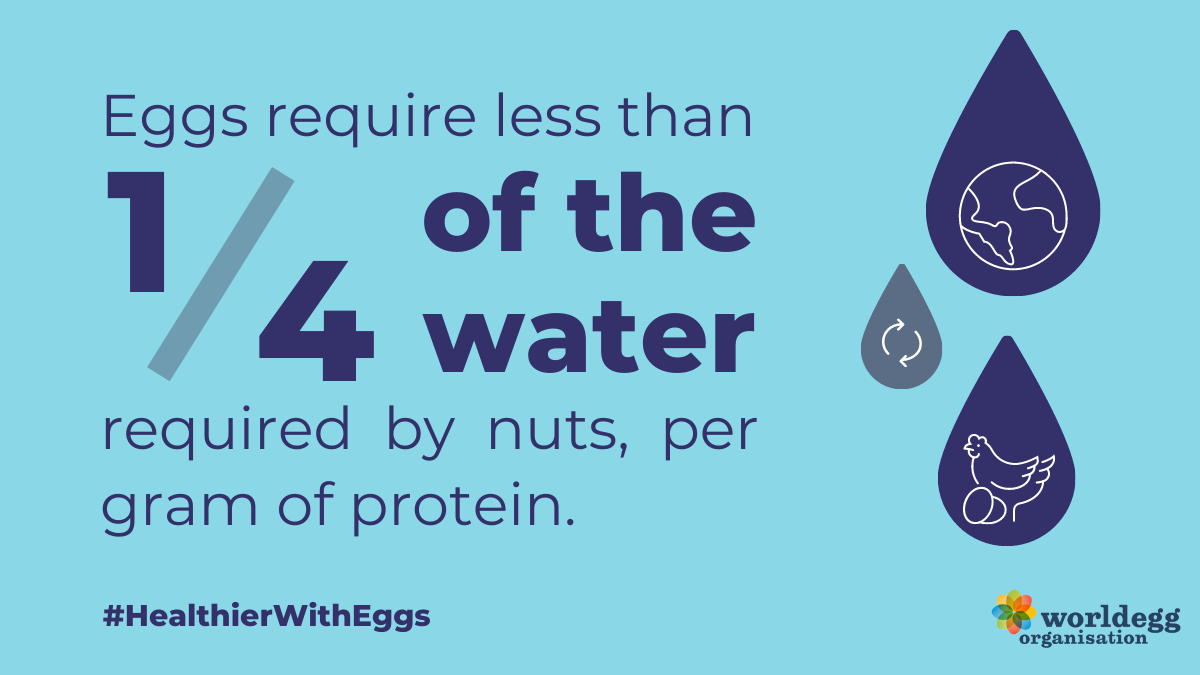World Health Day 2022 | Eggs for a healthy mind, body and planet!
For World Health Day 2022, the World Health Organization (WHO) are shining a spotlight on the direct impact planetary health has on human wellbeing, and the need to recognise the climate crisis as a health crisis too. A versatile ingredient, packed with essential nutrients and protein, eggs have the potential to play a key role in feeding our growing population and eradicating malnutrition in an environmentally sustainable way.
A nutritional powerhouse
Among the most nutritious foods on the planet, one large egg provides 13 essentials vitamins and minerals and 6g of high-quality protein1.
Eggs contain all nine essential amino acids, making them a ‘complete’ protein. Furthermore, the ratio and pattern in which these amino acids are found makes them the perfect match for the body’s needs.
Many of the nutrients found in eggs are commonly under-consumed yet are required as part of a healthy diet to help you perform at your best and avoid serious health issues.
Benefitting your brain
Eggs are one of the best dietary sources of choline, a little-known nutrient with an important role to play in supporting brain development and function.
More specifically, choline helps to produce signalling molecules in the brain, which is essential for cognitive growth and memory2,3.
While choline is needed by everyone at all stages of life, it is especially valuable in supporting cognitive development during pregnancy and breast feeding4. It can also help reduce cognitive decline in the elderly5.
Remember! Just one large egg fulfils 25% of your daily choline requirements1, bringing you incredible brain benefits in one tasty, versatile package.
Nourishing your body
Good for the body as well as the brain! Eggs are a powerful source of essential nutrients which support many different aspects of bodily health.
Protein is essential for the strength and repair of muscle and tissue, and not only are eggs packed with it, but the protein they contain is high-quality, meaning it is easily digestible with the right composition of all nine essential amino acids. This is what really distinguishes eggs from other protein sources!
Meeting your daily requirement of protein is important for fighting infections, growing strong hair and nails, optimising bone health, and building muscle – plus it can support with weight management6–10.
Eggs are also an eye-friendly food, with their yolks containing powerful antioxidants, lutein and zeaxanthin11,12. Studies show that a regular intake of these nutrients can significantly reduce the risk of cataracts and macular degeneration13–16. In one controlled study, eating just 1.3 egg yolks per day for 4.5 weeks increased blood levels of lutein by 28–50% and zeaxanthin by 114–142%17.
Furthermore, vitamin A, vitamin E and selenium are also found in eggs, supporting eye health as you age. In fact, vitamin A deficiency is the leading cause of blindness in the world18.
Speaking about her UN Nutrition Report released in June 2021, Lora Iannotti, director of the E3 Nutrition Lab at Washington University in St. Louis, said a child would need to consume at least 12 times as much of a plant-based alternative, such as carrots, to gain the amount of vitamin A available in a small serving of eggs19. As well as vision, vitamin A in eggs helps maintain healthy skin and a strong immune system.
Egg yolks are also one of the few natural sources of vitamin D. Sometimes called the ‘sunshine vitamin’, vitamin D plays an essential role in keeping our bodies healthy, especially our bones and immune system5.
There are many other nutrients in eggs that bring with them a multitude of benefits, including iron, which carries oxygen to the cells and helps prevent anaemia; and vitamin B12 and iodine, which support healthy brain function and child growth and development.
Protecting your planet
Incredibly, eggs are not just good for human health, but planetary health too! Eggs are a low impact protein source and have the lowest environmental footprint of common animal protein sources and comparable to some plant-based foods20.
This is thanks to new efficiencies and significant productivity gains that have been made on-farm and in the egg supply chain in recent years. For example, in Canada the environmental footprint of the egg production supply chain declined by almost 50% between 1962 and 2012, while egg production increased by 50%21.
Similarly, in 2010, the environmental footprint of a kilogram of eggs produced in the USA had reduced by 65% compared to 1960, with greenhouse gas emissions reducing by 71%22.
Eggs also use little water compared to other popular protein sources, like nuts, which require over four times more water than eggs, per gram of protein23.
Furthermore, egg businesses are always looking for new ways to make production more environmentally sustainable.
In Australia, 10 of the country’s 12 largest egg producers have already implemented some form of solar energy on their farms. And in Canada, the world’s first net zero barn is in operation. The egg industry is also actively working towards more sustainable soya sourcing, to help prevent deforestation in South America.
All-round goodness
Eggs are nature’s perfect package – nutritionally powerful with a low environmental impact. Not to mention, they are affordable, versatile, and super tasty too!
This World Health Day, as we look to our food systems to help secure a healthy future for ourselves and our planet, we must recognise the important role eggs can play in solving the hunger and climate crisis alike.
References
2 Zeisel SH & da Costa KA (2009)
6 Westerterp-Plantenga MS (2008)
8 Altorf-van der Kuil W, et al (2010)
10 Get Cracking
19 International Livestock Research Institute (IRLI)
20 World Resource Institute (WRI)
23 Mekonnen MM & Hoekstra AY (2012)
Promote the power of the egg!
To help you celebrate World Health Day, the IEC has developed a downloadable industry toolkit, including key messages, a range of sample social media posts, matching graphics for Instagram, Twitter and Facebook, and an engaging egg nutrition flyer (English toolkit only).
Download the World Health Day toolkit (English)
Download the World Health Day toolkit (Spanish)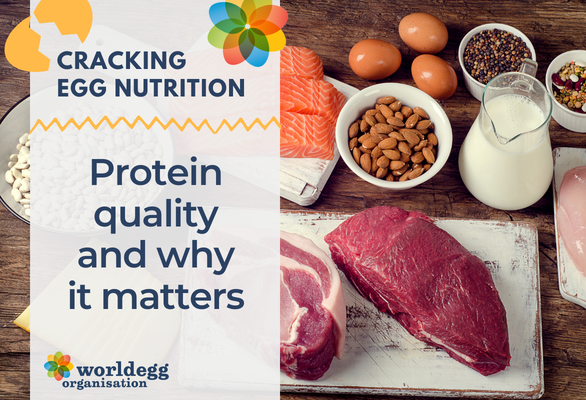
Protein quality and why it matters
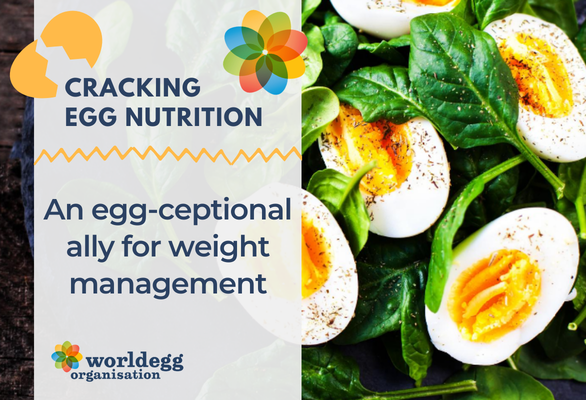
An egg-ceptional ally for weight management
